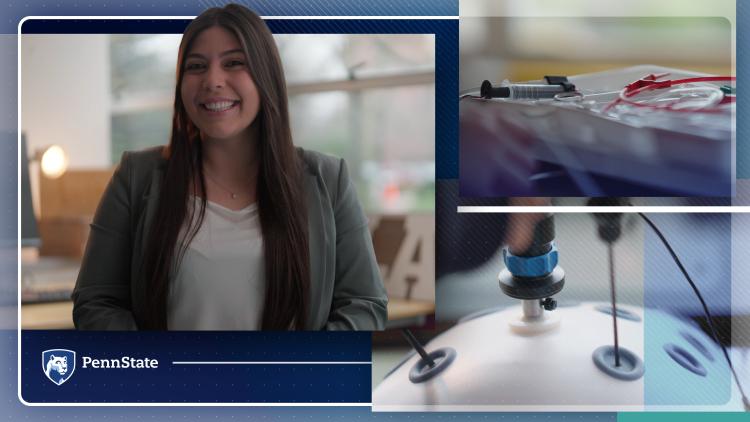UNIVERSITY PARK, Pa. — Jessica González Vargas, a postdoctoral scholar in the School of Engineering Design and Innovation, is working to improve physician training on one of the most common medical procedures in the United States — placing a central line in a patient’s vein. González Vargas is part of a Penn State research team that has designed and implemented a novel robotic training program for physicians to gain experience in the procedure while aiming to reduce error rates and complications. The program uses life-like manikins and augmented reality to simulate real-world scenarios for trainees.
Since developing the program, the team has trained more than 700 physicians on central-line placement and is expanding the medical simulation training at participating hospitals to include colonoscopies and laparoscopies. Their recent study, published in the Journal of Surgical Education, demonstrated a significant reduction in placement errors and in complications, including infections and blood clots, after the training was launched.
“As engineers, we can be embedded within a health care setting in a hospital and do something about it to actually improve patient outcomes in the future,” said González Vargas. “With our project and simulator, physicians can potentially go into the clinical environment more confident and more prepared than they would traditionally be.”
González Vargas became involved with the project while pursuing her doctorate in industrial engineering at Penn State. Learn more about her student success, including her contributions to and motivations for the project, in the video below.
